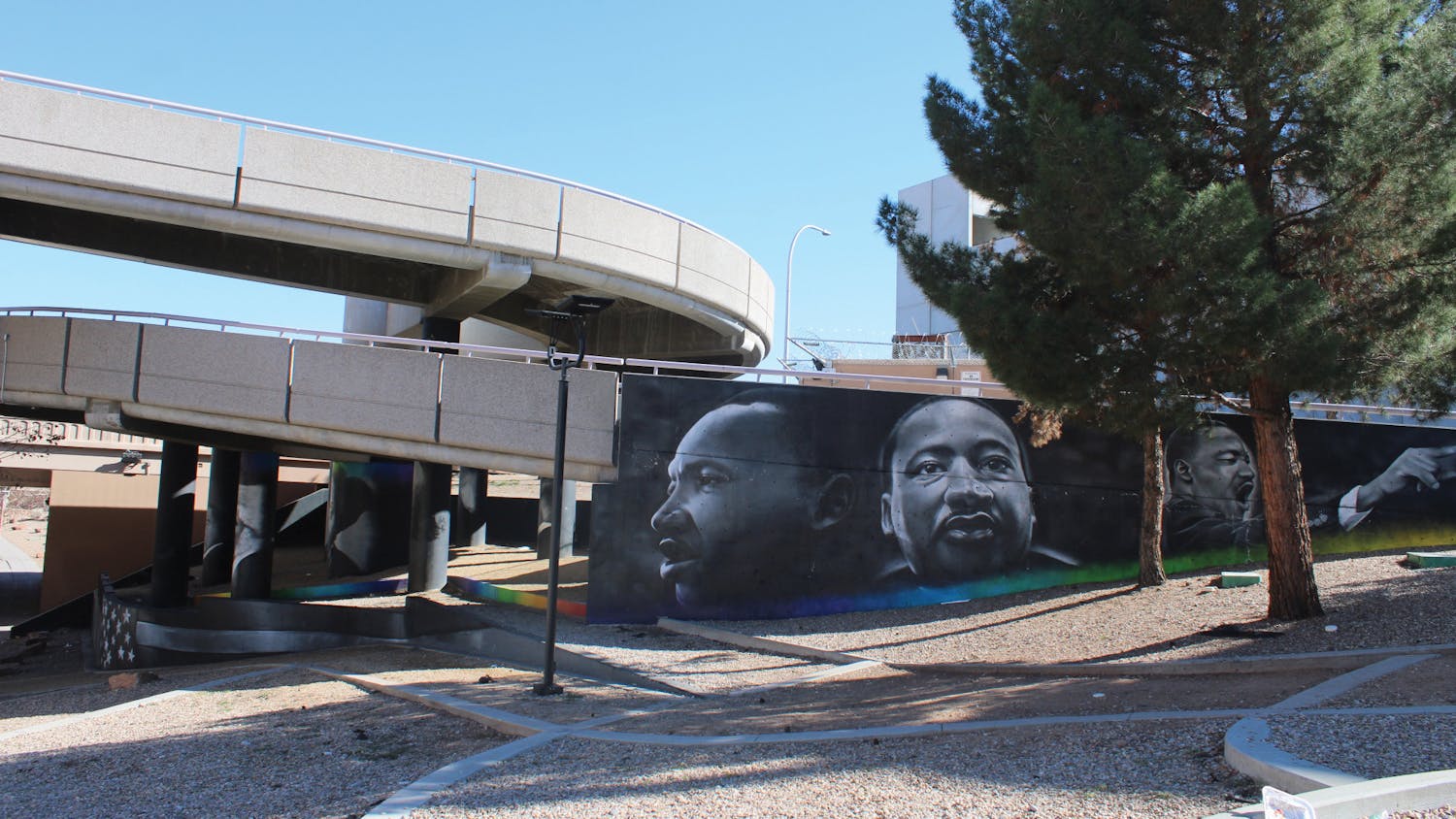Classes about love and relationships at the University of New Mexico help educate students on what makes a healthy relationship and how students can better improve their own love lives.
UNM psychology adjunct lecturer Bruno Gagñon has been teaching the Psychology of Love online for the past eight years and understands the depth and impact of love.
“All cultures experience love. They may define it differently; they may express it differently, but it’s universal so we’re sort of biologically driven to seek this out,” Gagñon said.
Love doesn’t have to be just toward a partner but can also be toward a child, pet and more, according to Gagñon.
“It gives us a very important sense of belonging, a sense of calm, a sense of security and a sense of meaning, and I can’t think of four or five more things that are more important in life than what I’ve just mentioned,” Gagñon said.
Love isn’t just about romance but is also about respect, according to student Stephanie Moulton, who took the Psychology of Love last year. Moulton said knowledge is essential to understand others’ reactions and thought processes, which can apply directly to your own as well.
“I think it’s just beneficial to be able to understand empathy and compassion and everything that has to do with relationships in general, whether that’s professional relationships or romantic relationships or family relationships and friendships,” Moulton said.
Having a support system is directly tied to “your overall health and well-being,” according to UNM health education faculty member Jennifer Escajeda, who teaches Emotional Health and Interpersonal Relationships. This support can come from family, friends or others.
“Everybody needs socialization. They need people around them to support them. They need people around them to bounce stuff off of when they’re going through things, like everybody just needs their own circle of people,” Escajeda said.
Without healthy relationships, Gagñon said, life isn’t complete.
“You can have tremendous success in various aspects of your life and various domains, whether it’s as a parent, in the workplace, but if you don’t have loving relationships — I’m not just talking about partner love but loving relationships — if you don’t have something that you can sustain and that can sustain you, there’s always going to be something missing,” Gagñon said.
Moulton brought up the legitimacy of love in LGBTQ communities and how these kinds of classes defy the arguments that there is some sort of biological definition that love must abide by.
Get content from The Daily Lobo delivered to your inbox
“If you take the classes like these that help you understand how love factors into how people behave and respond, you can understand it from another perspective,” Moulton said.
Gagñon said his course’s topics of love directly relate to students’ personal lives, and students have told him they’ve received “concrete information for how to make better choices.” Both Gagñon and Escajeda said students have thanked them later on for the courses, saying the classes changed their lives.
“Through all the readings that we do and the introspection, invariably students will think about their own experiences with love, their own mate selection processes; it immediately applies to their lives in the present,” Gagñon said.
Although college students may not realize it, there is a direct connection between relationships and health, according to Escajeda. She said college students need to learn what a healthy relationship is.
“Just having a support system and healthy relationships, that’s going to help their health in the long term. And that plays into everything — it plays into how they react with their anxiety, their fear, just everything,” Escajeda said.
Gagñon’s class adapted to fit the COVID-19 pandemic with new sets of timely coursework and he noted that the strength of a relationship before the pandemic, whether good or bad, typically determined how the relationship has been affected by the situation. Relationships in the pandemic can be more stressful, according to Moulton, partly due to the fact that “the normal trajectory for these conflicts tends to have a finish line and we’ve not reached it.” Still, she said there are ways to avoid interpersonal conflict.
“If you can take yourself out of being reactive and look at things more from an angle of what could cause someone to react a certain way or behave a certain way, if you can just pick yourself out of that equation and be able to look at it through another’s eyes, then you can avoid a lot of the conflict and the stress and the anxiety and everything that goes with it,” Moulton said.
Gagñon wants students to appreciate the depth of love after taking his course.
“I would like students to come to understand as deeply as possible this very human universal experience of love … I would also like them to be able to make better choices in life and to have successful relationships,” Gagñon said.
Megan Gleason is the Editor-in-Chief of the Daily Lobo. She can be contacted at editorinchief@dailylobo.com or on Twitter @fabflutist2716






